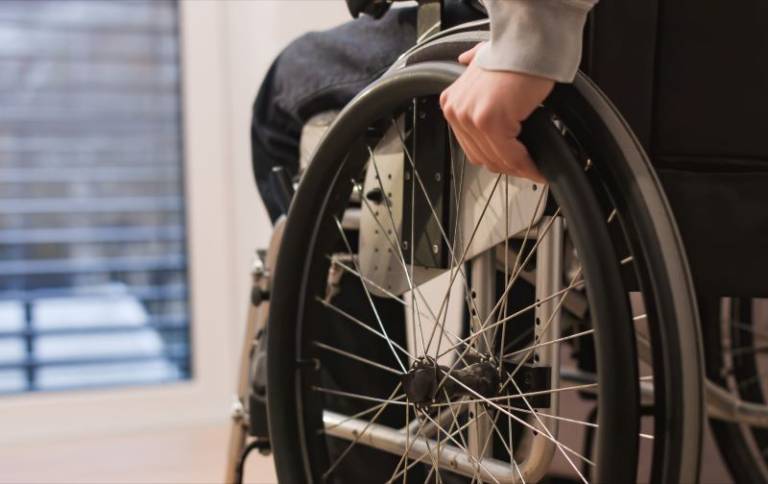‘Muscles in a dish’ project to test genetic therapies for muscular dystrophy
11 July 2023
An international project to find new treatments for muscular dystrophy, led by a UCL researcher, has been awarded a €9.5 million (£8 million) grant from Horizon Europe and UKRI.

The Next-generation Models And Genetic Therapies for rare neuromuscular diseases (MAGIC) project will be led by Professor Francesco Saverio Tedesco (UCL Biosciences) and his team at UCL and the Francis Crick Institute, alongside support from Professor Mario Amendola (Inserm and the Genethon Institute).
The project will bring together 15 partners across nine countries, from research hospitals and institutions to businesses and charities.
Muscular dystrophies involve muscle weakness and wasting, causing impaired movement and potentially shortening lifespan.
Although research has helped identify genetic mutations associated with different types of disease, there are still no effective genetic therapies for most muscular dystrophies.
Professor Tedesco said: “As a paediatrician, I want to be able to offer hope to the children that I treat and their families. This project represents a significant step forward in the search for effective treatments for muscular dystrophies.”
The group’s main aim will be to create human models of skeletal muscle disease, to allow the development of new genetic therapies.
The animal models that are used to study muscular dystrophy have often failed to predict the potentially toxic side effects of new gene therapies.
However, the MAGIC project aims to create cell-based ‘muscles in a dish’ which can be used to predict toxicity and how well the therapy will work before it is tested in people.
Researchers hope to use these models to develop vectors (modified versions of viruses), which can then be used to deliver gene therapies, such as a healthy copy of a faulty gene or gene editing tools.
They also believe that using the technique will reduce the use of animal models in muscular dystrophy research.
The MAGIC consortium aims to generate more specific therapies for different types of muscular dystrophies, including Duchenne muscular dystrophy (DMD) and X-linked centronuclear myopathy (XLCNM).
For example, one type of muscular dystrophy involves muscle fibres becoming weak because supporting cells around them are not working properly. Working out how to target these support cells could help re-strengthen the muscle.
Involving biotechnology companies will help ensure key project outputs are translated into potential treatments as soon as possible.
Meanwhile, the researchers plan on collaborating with national and international patient advocacy groups, such as Muscular Dystrophy UK, the Duchenne Data Foundation and Parent Projects aps, to ensure the experience of patients remains central to the research.
Professor Tedesco said: “Through cutting-edging bioengineering, innovative genetic therapies and advanced preclinical translation, we aim to make a difference to the lives of people affected by these devastating diseases.”
Links
- The MAGIC project
- Horizon Europe
- UKRI
- Professor Francesco Saverio Tedesco’s academic profile
- UCL Division of Biosciences
- UCL Life Sciences
- The Francis Crick Institute
- The Tedesco Laboratory
Image
- Credit: 24K-Production on iStock
Media contact
Poppy Danby
E: p.danby [at] ucl.ac.uk
 Close
Close

